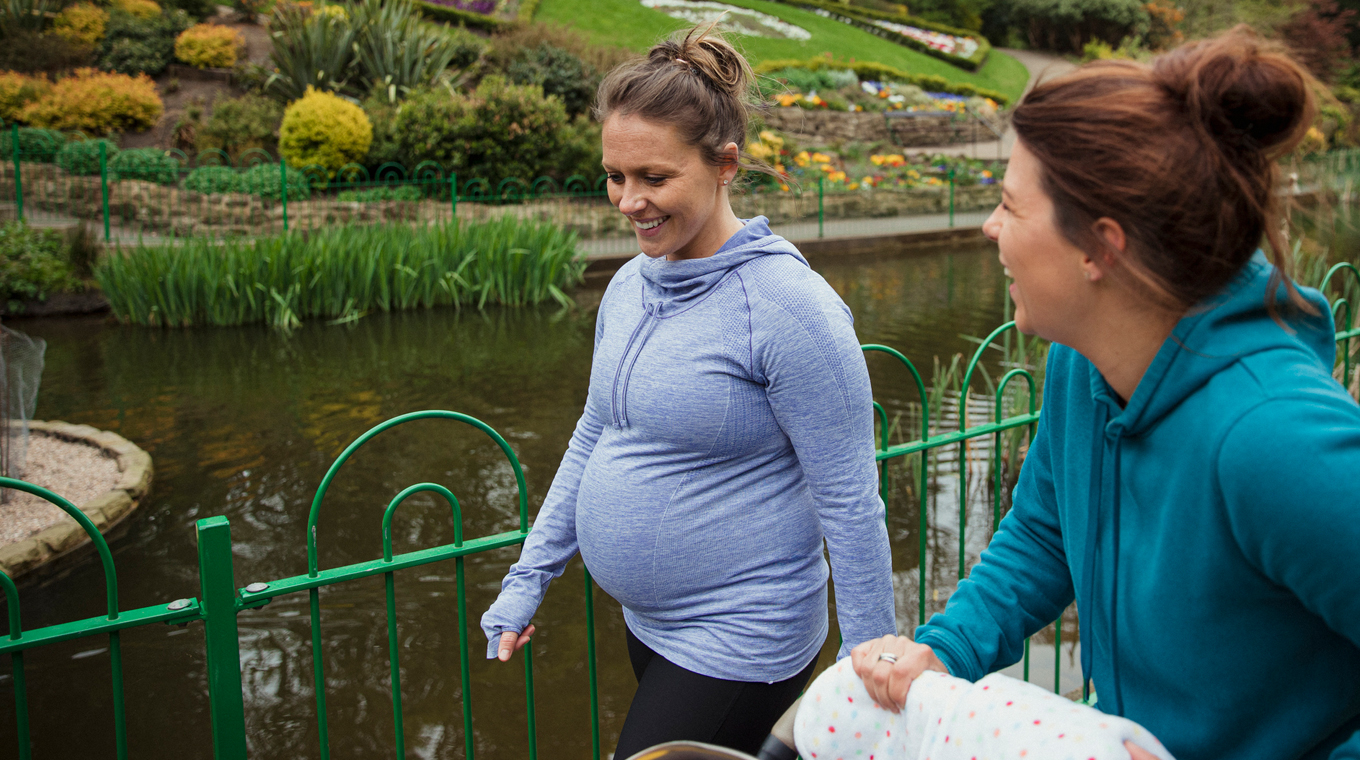
In this article:
Pregnancy is a time of many changes. You’re about to be responsible for another human life — so some anxiety is normal. But sometimes, the anxiety and depression can be so severe as to affect your daily life. Not only is your mental health important, but extreme stress and anxiety during pregnancy are tied to preterm delivery and delivery complications like preeclampsia, premature birth, and low birth weight.
Here are some symptoms to be aware of, and tips to help calm your anxiety while pregnant.
What are anxiety symptoms while pregnant?

Being nervous while pregnant is totally normal. After all, it may be your first pregnancy, your pregnancy might be high-risk, or you may have had worrisome experiences like miscarriages that give you good reasons for concern.
Here are some symptoms of anxiety:
- Excessive worry about things like the health of yourself or your baby
- Uncontrollable feelings of anxiousness
- Unable to concentrate or focus
- Irritability or agitation
- Tense muscles
- Poor sleep or sleep disturbances like insomnia
Can you take anxiety medication while pregnant?

If you’re one of the many people who need to take medication for your mood disorder, you may be concerned about whether or not it is safe for you to continue to do so while pregnant. This is especially because many doctors will tell you that you will need to stop taking antidepressants during pregnancy.
That’s because even though medication is often the most effective treatment for anxiety, most of the drugs have never been tested on pregnant people so doctors don’t know (or aren’t sure) of their effects on fetuses. Some studies have even shown a potential link of Wellbutrin and selective serotonin reuptake inhibitors (SSRIs) with preterm birth, autism, or even temporary symptoms of discontinuation like jitters, irritability, and poor feeding.
However, there are also risks associated with mothers and people having untreated anxiety such as:
- Suicide
- Termination of pregnancy
- Not taking care of general physical health
- Postpartum depression or anxiety
- Controlled substance or alcohol abuse
- Preeclampsia
- Preterm labor/delivery
- C-section
- Impaired feelings of attachment to the baby
Experts suggest framing the question in terms of “risks vs. risks” instead of “safe vs. unsafe.” Please discuss with your doctor and medical professional to weigh the risks of taking medication for anxiety against the risks of not taking the medication.
How to calm anxiety while pregnant

Everyone’s mental health has taken a hit during these COVID-19 times — and pregnant people are no exception. Please remember to take your mental health seriously. If your anxiety and depression are negatively affecting your daily life, please see a mental health professional.
In the meantime, here are some tips that might help treat your anxiety (but by no means is a substitute for seeking professional help).
Think happy thoughts
When visions of mammoth college tuition bills float into your head, try replacing them with positive imagery. Hypnosis and relaxation techniques, including imagining pleasant images, can be helpful for pregnant people with anxiety. Try envisioning several positive images — like snuggling with your baby and celebrating their first holiday season — when an anxious thought arises.
Practice mindfulness
Obsessing over things you can’t control can cause anxiety to build. Try accepting your worries as facts, then focus your attention on the present. For example, if you start to feel overwhelmed by fear about the pain of childbirth, tell yourself that labor might hurt but it will be temporary and there’s nothing you can do about it now. Turn your attention toward a good book and a cup of tea.
“I would go on walks,” Patti Chang told Mom.com. “It cleared my head, I could focus on other things, and I got in some light exercise.”
Be proactive
Getting answers to questions that worry you may help put those fears out of your mind. Schedule a tour of the birthing center where you’ll have the baby. Ask your doctor about prenatal care groups that include women who are all at the same stage of pregnancy for regular sessions. These groups lower stress and create a kind of support group.
Behavior specialist and mental health consultant Marcie Beigel, Ed.D. BCBA-D, says that being pregnant is the perfect time to practice strategies you may have read but haven’t used. “Go for a walk or drink a glass of water while feeling anxious or create a meditation practice to help with ongoing anxiety,” she told Mom.com. “Take time now to learn how to navigate your anxiety so that your soon-to-be-children can benefit from your hard work.”
Ask for help
If people have responded to your pregnancy with offers to help with anything you need, take them up on those offers now. When an anxiety attack strikes, turning to a trusted friend or your partner can help you see straight. Come up with reassuring statements (before you are having a panic attack) and ask those around you to repeat them to you when you’re anxious.
Scheduling walks and yoga sessions with friends to combine exercise, laughter, and companionship: all things that will help you feel warm and supported during pregnancy.




